Samurai Experience: Art and Soul of the Sword
Set out on a journey to uncover the art and soul of the Samurai. Here, the sword is not just a weapon but a reflection of the warrior’s spirit. As the saying goes, ‘The pen is mightier than the sword,’ but in the world of the Samurai, the sword embodies their very essence.
Discover the secrets behind their mastery, the discipline of their training, and the profound philosophy that shaped their way of life. Dive into a world where honor, tradition, and skill intertwine to create a legacy that continues to captivate and inspire.
Key Points
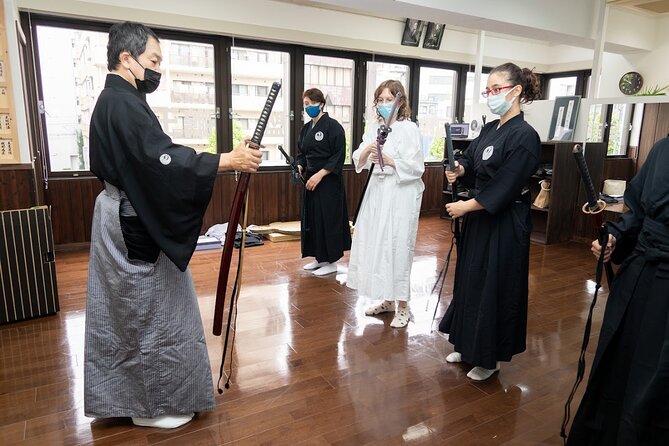
- Samurai swords embody honor, loyalty, and the spirit of Bushido.
- Craftsmanship blends precision and artistry in forging timeless artifacts.
- Swordsmanship philosophy promotes discipline, focus, and respect.
- Training techniques cultivate physical, mental prowess, and spiritual strength.
History of the Samurai Sword
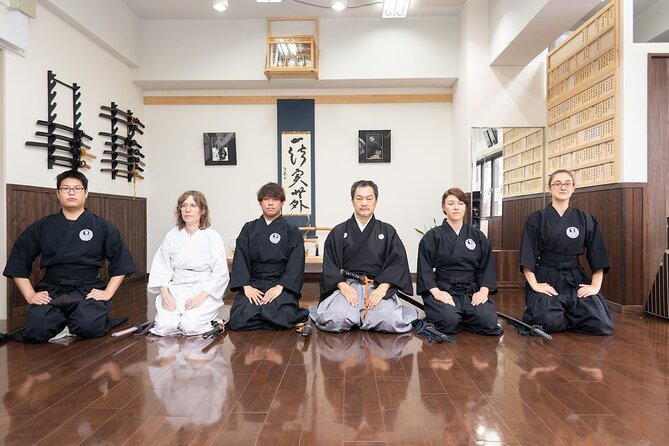
Tracing back centuries, the history of the Samurai Sword is a captivating tale of craftsmanship and martial prowess. Sword forging wasn’t merely a technical process but held profound historical significance, symbolizing honor and loyalty.
The evolution of swordsmanship techniques intertwined with the cultural evolution of Japan, shaping the way of the warrior and emphasizing discipline and skill. Each sword was a masterpiece, meticulously crafted by skilled artisans, embodying the soul of its maker and the spirit of the samurai.
The Samurai Sword became more than just a weapon; it became a symbol of the samurai’s code of conduct, Bushido. Through the centuries, these swords haven’t only reflected the prowess of their wielders but also stood as timeless artifacts of Japanese culture and tradition.
The Craftsmanship Behind the Sword
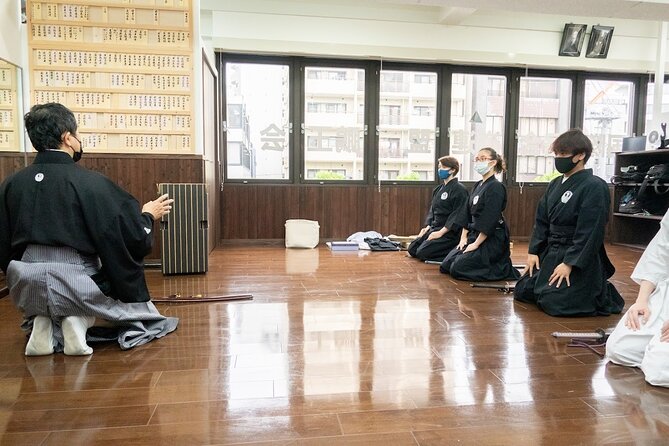
Crafting a samurai sword demands unparalleled precision and dedication from skilled artisans who imbue each blade with artistry and tradition. The craftsmanship techniques involved in sword making are a blend of meticulous attention to detail and profound artistic inspiration. The process includes forging the blade, shaping it, and applying the intricate designs that make each sword unique. Artisans use traditional methods passed down through generations, combining metallurgical expertise with aesthetic sensibility to create these masterpieces.
| Craftsmanship Techniques | Artistic Inspiration |
|---|---|
| Meticulous forging process | Historical events and legends |
| Skillful shaping techniques | Nature and the elements |
| Detailed design work | Japanese culture and mythology |
| Traditional methods | Personal creativity |
| Metallurgical expertise | Martial arts philosophy |
The Philosophy of Swordsmanship
With the sword’s craftsmanship rooted in tradition and artistry, the philosophy of swordsmanship embodies a way of life that transcends mere combat techniques. Samurai swordsmanship is deeply intertwined with philosophical insights and martial arts traditions, shaping not just how to wield a blade but also how to approach life itself.
Here are key aspects of the philosophy of swordsmanship:
-
Discipline: Swordsmanship emphasizes discipline in mind, body, and spirit, promoting a harmonious balance that extends beyond the dojo.
-
Focus: Central to swordsmanship is the cultivation of unwavering focus, honing the ability to be fully present in every moment of combat.
-
Respect: Respect for one’s opponent, the art of swordsmanship, and the traditions passed down through generations is fundamental to the practice.
Samurai Training Techniques Revealed
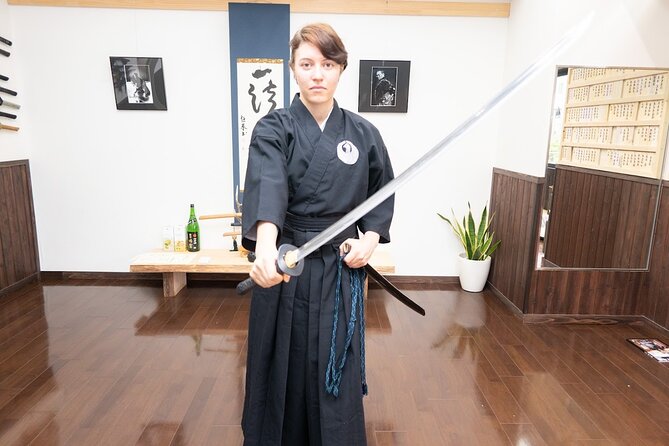
Exploring the ancient art of swordsmanship, samurai training techniques reveal a blend of physical prowess and mental fortitude essential for mastering the way of the sword. Training methods employed by samurai focused on developing both the body and the mind. Through rigorous practice of various sword techniques, samurai honed their skills to perfection, emphasizing precision and speed in their movements.
However, beyond the physical aspects, these training methods also sought to cultivate a deep spiritual connection and inner strength. The sword wasn’t merely a weapon but an extension of the samurai’s being, reflecting their innermost thoughts and beliefs. By mastering the sword techniques and embracing the spiritual aspects of training, samurai were able to embody the true essence of the warrior spirit.
Symbolism and Rituals of the Sword
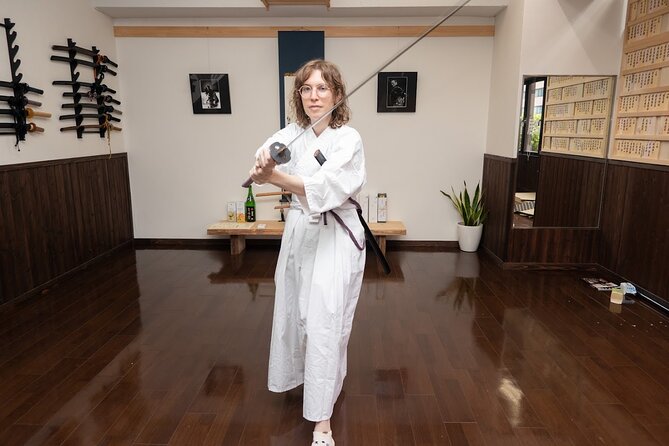
Samurai swordsmanship extends beyond mere physical combat, delving into a realm rich with symbolism and intricate rituals that imbue each movement with profound meaning. The sword, known as the katana, holds great Symbolism in Japanese culture, representing honor, loyalty, and discipline.
Traditions surrounding the sword include ceremonies for its forging, maintenance, and even its retirement. Each aspect of the sword’s care and use is steeped in centuries-old rituals that honor the weapon as more than just a tool for battle. The intricate handguard, or tsuba, often features intricate designs that further enhance the Symbolism and connection to the samurai’s code of conduct.
Modern-Day Impact of Samurai Culture
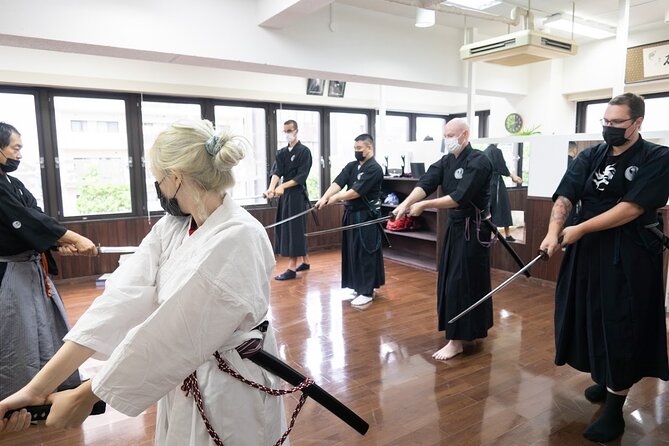
In today’s society, the enduring legacy of samurai culture continues to influence various aspects of modern life, from martial arts to business practices. The impact of samurai traditions can be seen in the discipline and focus instilled in martial arts practitioners, reflecting the values of honor, loyalty, and respect that were integral to the samurai way of life.
In business, the influence of samurai values such as integrity, strategic thinking, and dedication to mastery can be observed in successful leadership practices and organizational structures. The timeless wisdom of the samurai code, Bushido, continues to resonate with individuals seeking guidance on ethics and moral conduct in a rapidly changing world, showcasing the lasting influence of these ancient warriors on contemporary society.
Common questions
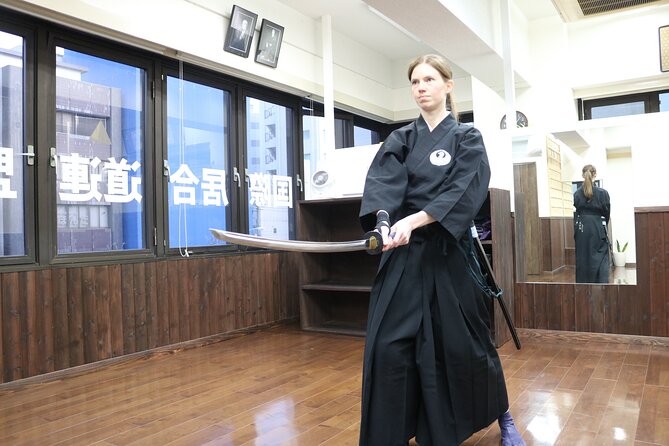
Are Participants Required to Bring Their Own Samurai Sword for the Experience?
Participants are not required to bring their own samurai sword for the experience. Sword etiquette is observed, and all necessary equipment is provided. This ensures a safe and authentic experience where visitors can immerse themselves fully.
Is There a Dress Code or Specific Attire Required for the Samurai Experience?
For the samurai experience, participants should wear traditional attire to fully enjoy the cultural experience. Following proper etiquette is essential for an authentic encounter. Embrace the spirit of the samurai with appropriate clothing.
Are There Any Age Restrictions for Participating in the Samurai Experience?
Age restrictions for participating in the samurai experience vary. Some activities may have minimum age requirements for safety reasons. It’s essential to check the specific guidelines before booking to ensure all participants meet the necessary criteria.
Will There Be Opportunities to Take Photos or Videos During the Experience?
During the experience, you will have ample photo opportunities to capture their samurai journey. Video recording is also permitted to document the immersive activities. Both photos and videos serve as memorable mementos of this unique adventure.
Can Participants Expect to Interact With Real Samurai Descendants or Experts During the Experience?
Participants can expect to interact with real samurai and cultural experts during the experience. Engage with descendants and knowledgeable individuals, enhancing the understanding of this ancient art form firsthand, providing valuable insights and authentic connections.
Last Words
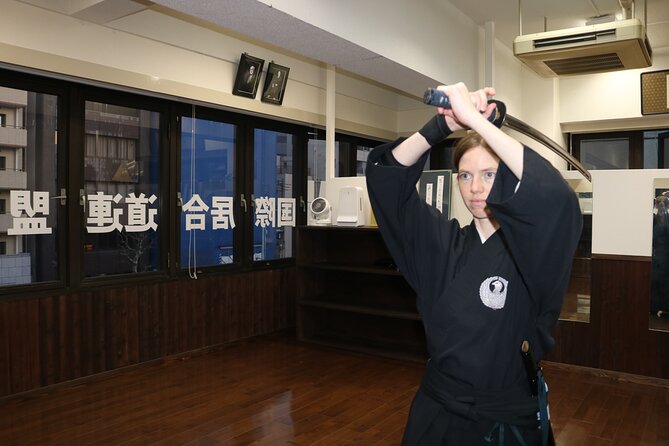
To sum it up, the Samurai Experience: Art and Soul of the Sword offers a fascinating glimpse into the world of these legendary warriors. Through exploring their history, craftsmanship, philosophy, training techniques, symbolism, and modern-day impact, readers gain a deeper understanding of the honor, discipline, and mastery that defines the Samurai culture.
This article serves as a gateway to discovering the rich traditions and cultural heritage of the Samurai, shedding light on their enduring legacy in Japanese history.